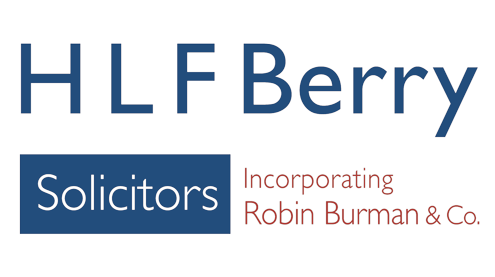Your guide to the conveyancing search process
For most of us, buying a home is one of the largest investments we will make. To protect your investment, HLF Berry’s residential property experts in Chorlton and Failsworth will carry out several conveyancing searches to ensure that your new home holds no nasty surprises in the future. But before discussing the search process, it is important to mention the survey. The seller does not have to tell you about any defects in the property, so it is wise to consider getting an independent survey. Remember, the purpose of a mortgage valuation is to protect the lender’s interest, not yours. Your lawyer can advise you on the different types of survey, and which is best for you, and by involving our residential property team, we can identify problems we are aware of locally and suggest points you need to raise with your surveyor.
A. Local authority search
A standard local authority search will reveal whether the Local Council is aware of any adverse matters directly affecting the property. These include tree preservation orders, smoke control orders, as well as the property’s recent planning and building regulation history. It will also reveal whether the property is in the vicinity of any planned major infrastructure projects such as HS2 and Crossrail. Whilst only properties within 200 metres of such projects are considered to be directly affected, even properties further away may suffer from widespread disruption and see their value decline.
Our lawyers will also draw upon our experience and local knowledge to raise any required additional enquiries, specific to your property.
Understanding the search results is as important as asking the right questions in the first place. For example, the search may reveal that the property is a listed building. Examining the listing report will reveal any potential implications. Similarly, an apparent breach of planning consent may not be an issue if the time limit for enforcement has passed, and we can help determine whether the use or operation has become lawful.
B. Drainage Search
It is important for you to know that the property is connected to mains water supply and foul and surface water drainage, and the search also confirms resent water quality testing for the area. For properties that are not connected to these services, and have some form of private drainage to a septic tank, or spring water supply, the search will indicate the nearest possible connection points to the mains services, which would help in estimating the cost of arranging mains connection in the future.
C. Environmental search
This search is becoming much more important as everyone becomes more aware of the problems caused to properties affected by contaminated land. Local Councils are gradually identifying more sites that should have been decontaminated in the past, but which were not decontaminated before building, due to lack of knowledge. If a property is identified as requiring decontamination, the cost falls to the property owner. This search helps to identify any likelihood of the property falling within an area of historic contamination. It also gives details about past and current industrial and business uses in the surrounding area that might have an adverse effect of the value of the property, or on your enjoyment of the property.
D Specialist searches
Depending on the type of property you are buying and its location, more specialist searches may be required. Sometimes the issue may not be obvious for example the effects of historic clay or coal mining, resulting in a higher risk of ground instability. In other cases, additional searches and enquiries can help to assess a known or suspected risk, such as flooding.
E. Chancel repair liability
In England and Wales, liability for the cost of maintaining a pre-Reformation parish church may fall on certain property owners. Your solicitor can check whether this is likely to affect your property, and arrange insurance for you if there is any risk
F. Checking the Land Register
Almost 80 per cent of land in England and Wales is registered, which means a central register records the ownership of the property. Your lawyer will obtain official copies of the register from the Land Registry which will confirm the seller’s ability to transfer ownership of the property to you. This will also show an indication of the boundaries of the property and any rights or restrictions affecting it.
Our experienced conveyancers will explain the significance of any register entries to you. For example, if the search reveals a covenant against alterations to the building it may appear to scupper your plans for an extension. However, those restrictions may no longer apply and even if they do, we may be able to negotiate a release, or arrange insurance cover to pay out in the event of prosecution for a breach of covenant.
Carefully checking the Land Registry’s record of the property’s extent against what is “on the ground” can avoid boundary issues catching you out later.
G. Land Charges Register
For unregistered properties, there is no central record of title. Instead, your lawyer will examine the deeds and carry out searches against the previous owners of the property at the Land Charges Department. The sale will trigger a requirement to register the property at the Land Registry, so we will also check that nothing prevents registration there.
If any issues with the unregistered title are identified it may be advisable to insist that the seller applies for voluntary first registration. You would then know that the title is acceptable to the Land Registry and to your mortgage lender before committing yourself further.
H. Pre-completion searches
Just before completing the transaction, your lawyer will check that the search results remain up to date, and that nothing has been registered against the property at the Land Registry (or in the Land Charges Register) since the start of the buying process. If you are taking out a mortgage, they must also carry out a bankruptcy search for your lender.
I. Reporting back
Keeping you informed is crucial, as is updating your lender and the seller’s advisors on progress. We know good communication can keep things on track, even when a search result throws up something unexpected.
If you are buying a house contact our conveyancing team at our Chorlton office on 0161 860 7123 or Failsworth on 0161 681 4005
The contents of this article are for the purposes of general awareness only. They do not purport to constitute legal or professional advice. The law may have changed since this article was published. Readers should not act on the basis of the information included and should take appropriate professional advice upon their own particular circumstances.






